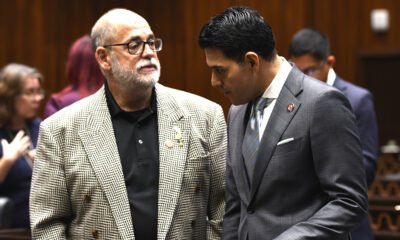analysis
Shining a Light on FOIA Failures 2025: Honoring the Least Transparent Government Practices

The public’s right to access government information faces ongoing challenges in the United States, with both political parties contributing to the erosion of transparency. A recent proposal in Maryland exemplifies this trend, where Democratic leaders aim to pass legislation enabling agencies to deny public records requests deemed “harassing.” Similarly, the Trump administration has removed certain government reform activities from the oversight of the Freedom of Information Act (FOIA), including extensive reduction of public data sets.
In the fight against governmental secrecy, public ridicule remains a potent tool. This annual tradition, known as The Foilies, is sponsored by organizations such as the Electronic Frontier Foundation, MuckRock, and AAN Publishers during Sunshine Week (March 16-22). This year marks the tenth anniversary of The Foilies, which highlights the most egregious responses to public records requests under FOIA and state laws.
One notable victory occurred last year when the Los Angeles Police Department attempted to retaliate against a journalist for publishing official photographs. Eventually, the LAPD lost the case, resulting in the city compensating the advocates $300,000 for legal fees.
Meanwhile, this year’s “winners” in public transparency failures are steeped in absurdity. Leading the pack is the Rapides Parish School District, which initially estimated $2 million to process a records request related to a controversial religious material distribution at Lessie Moore Elementary School in Louisiana. After media attention, the school district waived the fees and produced a meager nine pages of documents.
Not far behind, the Massachusetts State Police sought $176,431 to review materials regarding recruits’ early departures from the state’s training program. In another case in Louisiana, the Jefferson Parish District Attorney’s office charged a grieving father over $5,000 for records concerning his son’s suspicious death.
The University of Wisconsin-Madison also earned a spot on the list for its convoluted handling of a public records request regarding a contract with Altius Sports Partners. Initially denied by both the university and its affiliated foundation, the foundation eventually produced the contract only after a lawsuit was filed. This drawn-out process raised significant concerns about the extent of information schools are willing to conceal.
In the realm of national security, the CIA garnered attention for its absurd withholding of records about a Christmas celebration during Mike Pompeo’s tenure. Seven years after submitting a FOIA request, a journalist received redacted documents that included nothing of significant value, revealing the agency’s commitment to protecting even minor details at the expense of transparency.
Virginia Gov. Glenn Youngkin’s administration also faced scrutiny when it invoked a broad FOIA exemption to deny a records request concerning communications about a program that provides educational benefits to military dependents. Ironically, the requester was a military spouse involved in the governor’s task force focused on improving the very program in question.
The judicial system is not exempt from criticism. In California, a state trial court judge inexplicably locked the courtroom during a public records lawsuit initiated by the ACLU. The court’s decision to close the doors, in violation of constitutional principles, raised alarms about public access to justice. Similar issues arose in Nevada, where a judge prohibited cameras from recording hearings related to a public records lawsuit, despite rebuke from the state’s Supreme Court.
Lastly, the National Security Agency demonstrated an embarrassing lack of technological capability in responding to a FOIA request for a lecture by computer pioneer Rear Adm. Grace Hopper. Despite having access to the archive, the NSA denied the existence of any responsive documents for three years, revealing an alarming disconnect in handling historical records.


















